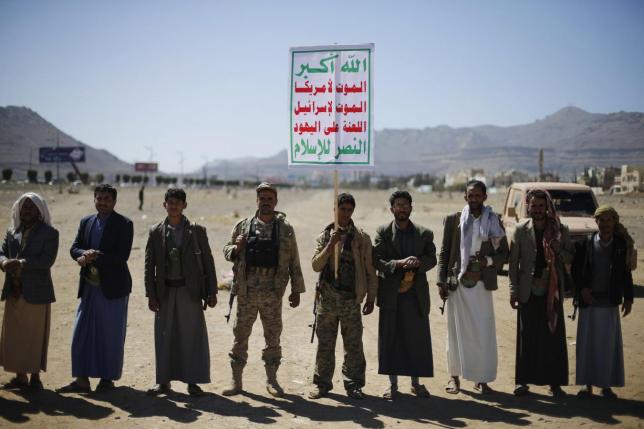Riydah- Peace-brokering efforts in Yemen have recently intensified, especially those spent by the Gulf Cooperation Council (GCC). All endorsements were pumped into the process of saving Yemeni peace talks in Kuwait from failure, after they were threatened by a series of violations committed by the insurgency delegation.
The infringements led to the governmental delegation suspending its participation from the negotiations.
Secretary General of GCC, Abdullatif Al Zayani, arrived in Kuwait to convene sideline meetings with both the governmental delegation and the U.N. Special Envoy to Yemen, Ismail Ould Cheikh Ahmed. Sources close to the matter said that the meetings would address the aftermath of the attacks which targeted the “titan military brigade” situated north of Sanaa.
Efforts are being poured into propositions and solutions preventing the negotiations from collapsing. One of the proposals is to fortify the ceasefire and turn it into a permanent one, in addition to prohibiting any violations committed by militias. Binding the insurgents to the U.N. resolution 2216 was also included in the precautionary measurements proposed.
Finally, the last proposition tackled the subject of “building trust,” which could be accomplished through several initiatives, such as the releasing of political captives, like Yemeni Defence Minister Mahmoud al-Subaihi and many other military, security and political figures.
The government’s delegation laid forth four conditions for it to resume attendance at the sessions. Sources closely affiliated with the delegation told Asharq Al-Awsat newspaper that the conditions include “the titan brigade being restored to pre-attack condition; cessation of all violations in Taiz, Al Bayda Governorate, Nihm and many other areas; and a clear and honest statement illustrating the delegation’s stances from the declarations made by the Yemeni ousted President Ali Abdullah Saleh on Russia Today, Russian government- funded television network, – given that the ousted President is a major part of the insurgency.”
Saleh had renounced any obligation towards the U.N. Resolution 2216 or freeing the captives.
Moreover, sources explained that the government’s delegation still is firm on the fulfillment of its terms, and had conveyed that to the U.N. envoy Ahmed and 18 ambassadors of international monitoring countries.
Efforts spent by the U.N. envoy and the GCC Secretary General aim at pressuring the insurgency to take a step forward towards peacemaking and corroborating the ceasefire.
Houthi militias have managed to outdo all their prior violations when they took over the Titan brigade and pounded civilians in Taiz and al-Bayda and Nihm district. Peace sponsoring efforts now are directed towards the salvation of peace talks and obtaining guarantees from the insurgency delegation.
Violations are one of the second prominent difficulties blocking headway in the peacemaking process. Observers also agree that the utmost hurdle is the insurgency’s refusal of the predetermined agenda for the negotiations and their altercations against the U.N. resolutions.
